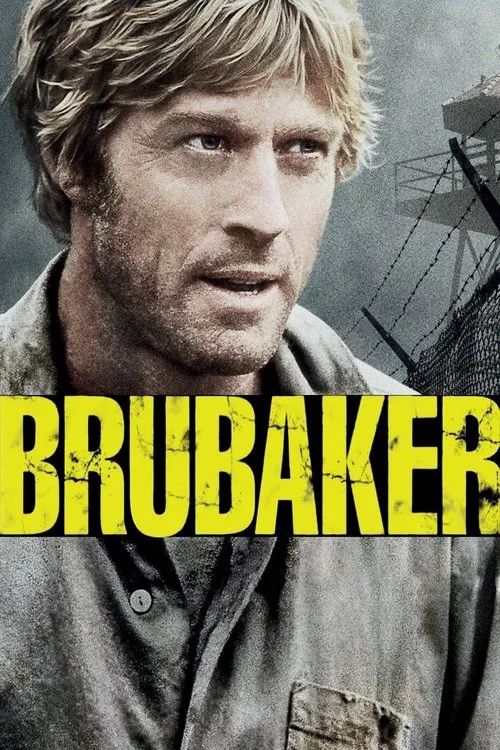Brubaker

Plot
Brubaker is a 1980 American drama film directed by Stuart Rosenberg, starring Robert Redford as Henry Brubaker, a man who decides to become the warden of a corrupt and decaying Arkansas prison farm. The movie takes an unflinching look at the harsh realities of prison life in the 1970s, focusing on corruption, abuse of power, and the desperate measures that prisoners are forced to take to survive. The film begins with a dramatic and powerful monologue by Brubaker, in which he tells his story and his reasons for taking a job as warden. The monologue provides a deep insight into Brubaker's character and his motivations for taking on the task of reforming the prison. Brubaker's initial step in reforming the prison is to pose as an inmate, which provides him with an insider's perspective on the day-to-day life of the prisoners. He gains the trust of the inmates, who are wary of the new warden and his true intentions. Through his actions, Brubaker exposes the corruption and brutality that permeate the prison, and begins to dismantle the system of abuse and exploitation that has existed for so long. The prison is run by Warden Hazlerigg, a corrupt and sadistic man who is concerned only with maintaining his own power and status. He is aided by his cohorts, including the brutal and merciless Deputy Warden Reed, who uses violence to maintain order and keep the prisoners in line. As Brubaker begins to expose the corruption and abuse that exists within the prison, he faces opposition from the warden and his allies. They will stop at nothing to prevent Brubaker from reforming the prison or exposing their misdeeds, and they use their power to try and intimidate and silence him. One of the most striking aspects of Brubaker is its portrayal of the lives of the prisoners. Many of the characters are based on real-life convicts, and the film's depiction of their struggles and hardships is both gritty and unromanticized. The prisoners are shown to be trapped in a never-ending cycle of violence, hardship, and despair, with little hope of ever being released from the prison. Despite the bleak nature of the film, Brubaker's character provides a sense of optimism and hope. He is a symbol of redemption and reform, and his determination to expose the corruption and abuse within the prison inspires the inmates and motivates them to take action. The film's climax revolves around a dramatic confrontation between Brubaker and the corrupt establishment, which ultimately leads to a major overhaul of the prison system. In the end, Brubaker emerges victorious, but not without suffering personal losses and setbacks. The film ends with Brubaker reflecting on the harsh realities of prison life and the challenges of reforming a corrupt and decaying institution. Throughout the film, the cinematography is stark and unflinching, capturing the bleak and desolate landscape of the Arkansas prison farm. The director, Stuart Rosenberg, uses long takes and natural lighting to create a sense of realism and authenticity, drawing the viewer into the world of the prison. Brubaker's cast, including Robert Redford, Yaphet Kotto, and Jane Alexander, deliver strong performances that bring depth and nuance to the characters. Redford, in particular, shines as the enigmatic and determined Brubaker, bringing a sense of gravity and conviction to the role. Overall, Brubaker is a powerful and unflinching drama that shines a light on the harsh realities of prison life in the 1970s. With its strong performances, gripping storyline, and unromanticized portrayal of the lives of prisoners, the film is a must-see for anyone interested in prison reform, corruption, or the human spirit.
Reviews
Recommendations




